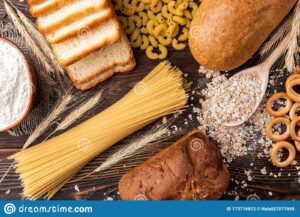Intolerance to some food is often a major factor in candida overgrowth. In the same way as an overloaded immune system cannot cope effectively with invading bacteria or viruses, neither can it cope with certain foods. However, there are very few of these offending substances you will need to avoid for the rest of your life. You need to take steps to strengthen the immune system, heal the intestinal wall and boost the production of digestive enzymes. Firstly you need to find out what foods you do not tolerate and avoid them so that your immune system can prioritize fighting the overgrowth.
If interested to know how homeopathy can help, book a 15 min free discovery call now.
The first food to avoid is the one that appears most often in your food diary. I normally ask my clients to keep a food diary for a week. This is because we often become addicted to the very foods which our immune system have difficulty tolerating. To check out suspected food, we need to avoid it for a minimum of five days which allows time for your immune system to forget how to tolerate it. This test is for guidance and does not replace food allergy tests that your doctor might do.
Pulse test
To do the test, you need to find quiet time for an hour. Firstly sit still for five minutes, then take your pulse and write it down. Secondly, eat the food that you are testing, continuing to sit still. Finally, retake your pulse after 10 minutes, again after 30 minutes, and again after one hour.
Take your pulse for a full minute and write it down each time. Food intolerance is very often shown by a rise or sometimes by a fall in the pulse rate. Sometimes the initial reaction is a rise followed later by a fall. There might also be some clear manifestation in other ways over the next 24 hours because, after a break of 5 days or more, the immune system might well react to it more strongly than before, giving rise to obvious symptoms.
Most common foods that we are intolerant to
If a suspected food is a member of a common food family, the whole family should be avoided so that the reactions are not masked. For example, the gluten family includes wheat, oats, rye, and barley. The nightshade family includes potatoes, tomatoes, peppers, and aubergines. Dairy includes milk, yoghurt, cottage cheese, cheese, and butter. Each food within the family is then tested individually at 48 hours intervals. It doesn’t mean that you will react to all the foods in a certain family- but, on the other hand, you might, and you really need to know.

How to interpret the results of the pulse test
If the overall change in the pulse rate is 10 beats or more per minute, either up or down, or there are unpleasant symptoms, it is important to avoid that particular food for the time being. If the change is slightly less, say 7, 8 or 9 beats per minute, it might not be necessary to avoid that food completely, but certainly treat it with respect and eat it no more frequently than every 4 days. If the change is less than 7 beats per minute and you experience no symptoms, you may assume it is safe to reintroduce that food to your diet.
Light in the tunnel
Very often, it becomes possible in due course to reintroduce the culprit foods. However, it might first be necessary to take additional steps to heal the ‘leaky gut, which has allowed the situation to arise in the first place. There is usually not much point in attempting this before candida is under control. I advise my clients to avoid the foods to which they are sensitive to keep a load off the immune system until the candida is under control. Meanwhile, they are taking remedies to rebalance the gut and address the underlying causes that lead to Candida overgrowth in the 1st place. I often advise on supplements to heal the leaky gut in combination with homoeopathic remedies. When your gut is healed and is in balance, you can start reintroducing the foods you did not tolerate in the past. The treatment is individualised to your symptoms and your underlying causes.
When there is total intolerance to gluten or cow’s milk, this sometimes has to be accepted as a lifetime situation. This type of intolerance is not due to a ‘leaky gut’ but to an enzyme deficiency. Your body simply doesn’t make the enzymes needed to digest those specific foods.
Case: I had a client Nicole, with intolerant to wheat and nightshade family fruit and vegetables. She loved tomatoes and pasta but couldn’t tolerate them. She consulted me for candida overgrowth and leaky gut. After a few homoeopathic detoxes and a constitutional remedy, she was able to tolerate all those foods again. Nicole had 4 appoitments with me before she was back to balance.
Book 15 min. freeDisclaimer
This article is for educational purposes only and not intended to replace the advice of your physician or health care provider. First aid situations may require medical or hospital care. Do not use this article as a means to diagnose a health condition. Speak to your doctor if you think that your condition may be serious before discontinuing any medication that has been prescribed for you or before starting any new treatment.
